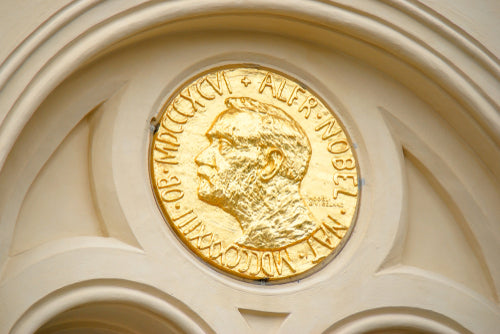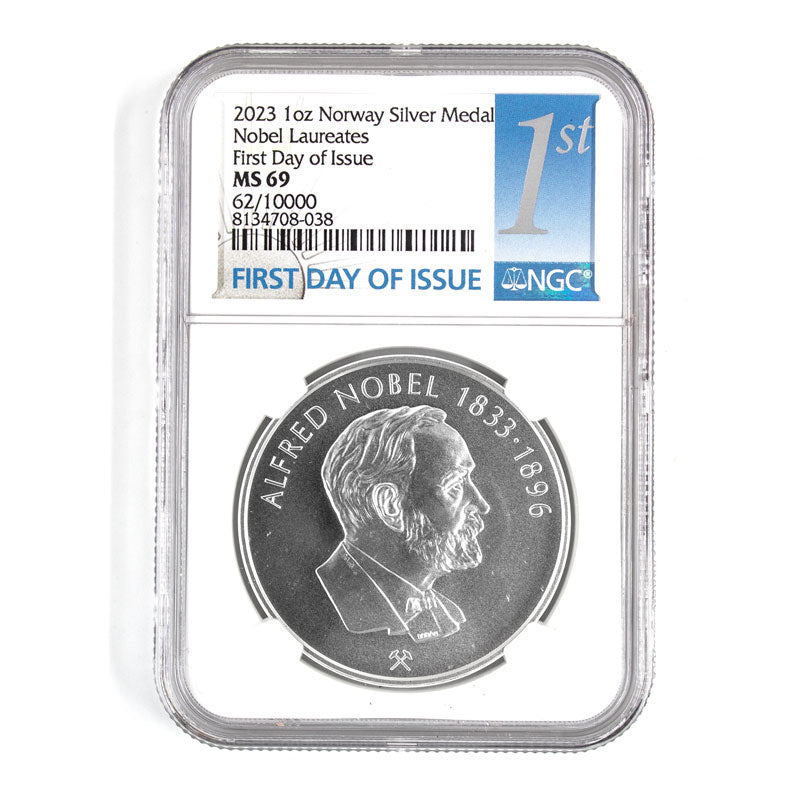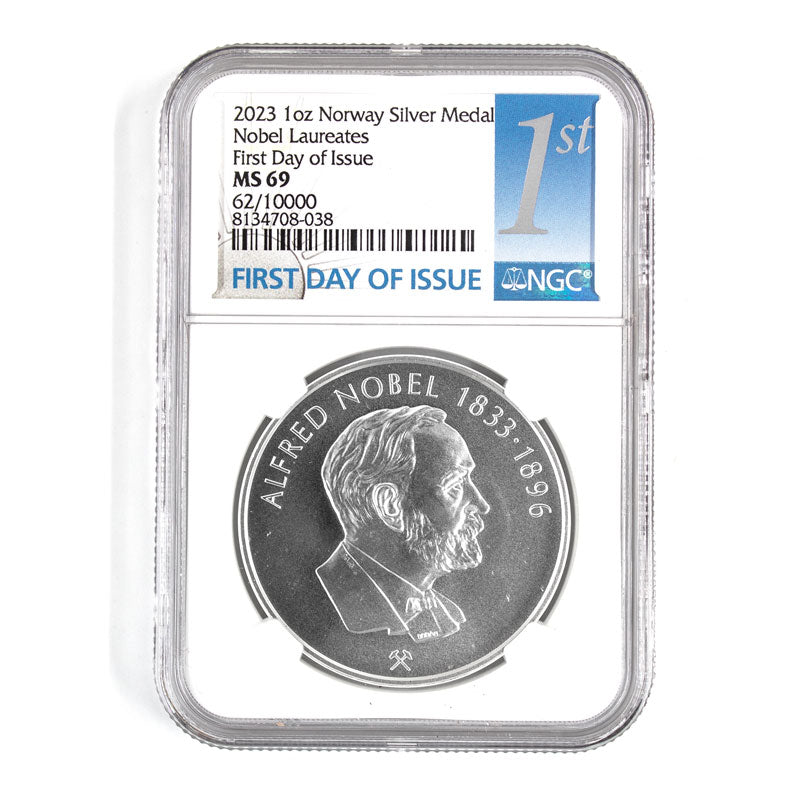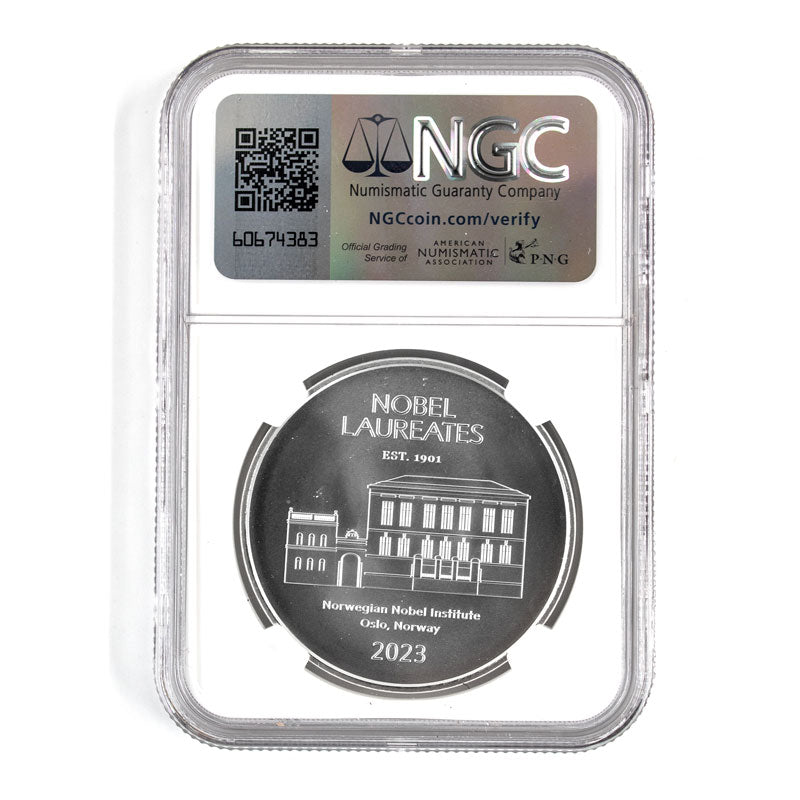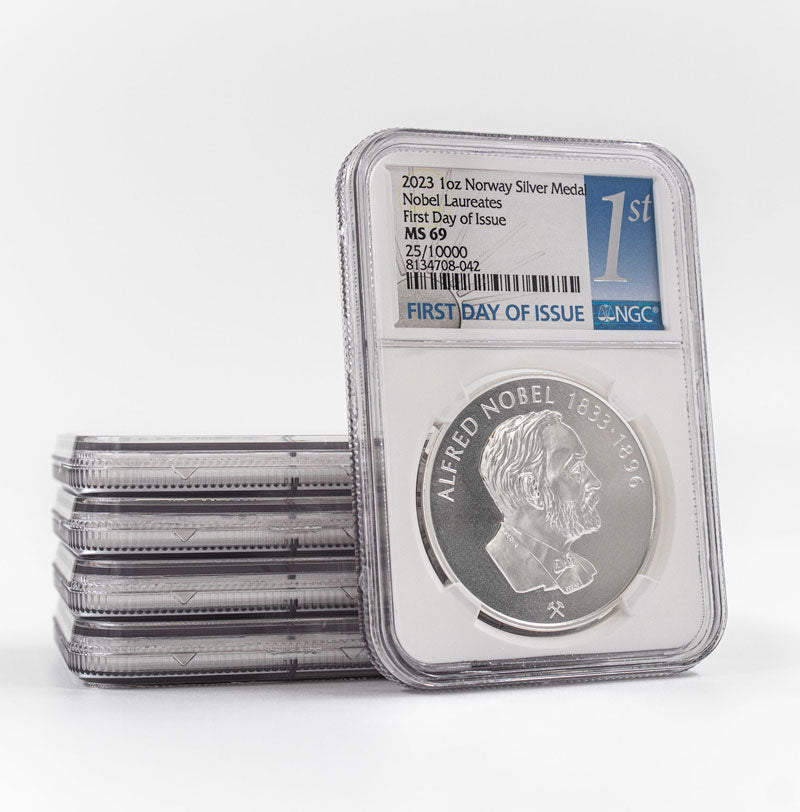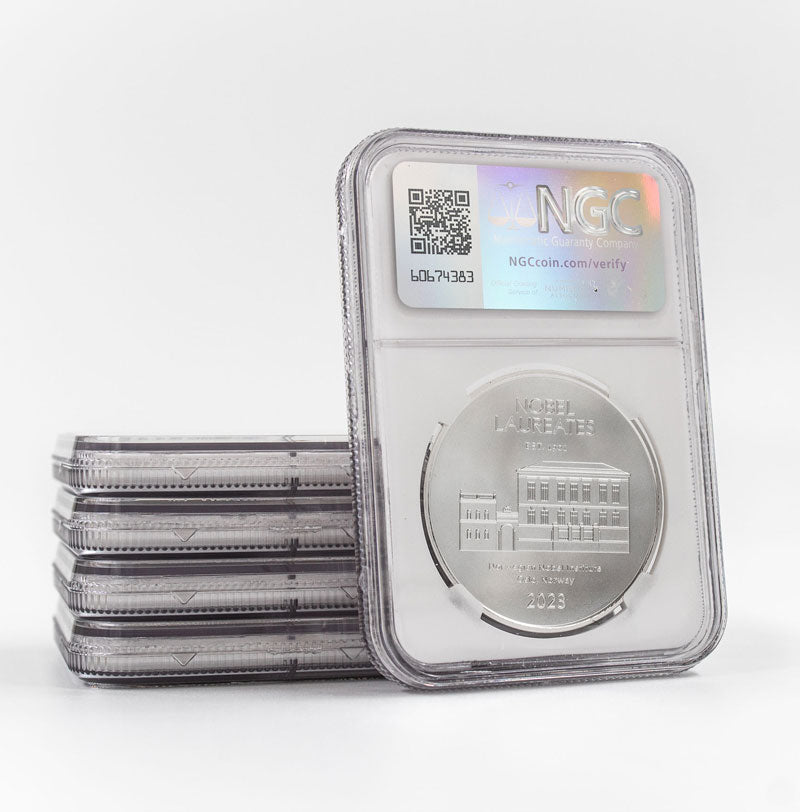Share
The inspiration and motivation behind the Nobel Peace Prize, as conceived by Alfred Nobel, reflect a blend of personal ideology and a reaction to the public perception of his work. Nobel, known for inventing dynamite, initially believed his invention would lead to peace. He once stated, "My dynamite will sooner lead to peace than a thousand world conventions. As soon as men will find that in one instant, whole armies can be utterly destroyed, they surely will abide by golden peace". However, as dynamite began to be used in military incursions, Nobel's views evolved. Despite his involvement in military weapon production, he was largely known as a pacifist.
A pivotal moment came in 1888 when a French newspaper mistakenly published Nobel's obituary instead of his brother's, labelling him "the merchant of death" for becoming rich "by finding ways to kill more people faster than ever before". This mischaracterization profoundly impacted Nobel, prompting a desire to alter how he would be remembered. His determination to change his legacy was further influenced by his friendship with Austrian pacifist Bertha von Suttner. Reflecting this transformation, he once noted, "I intend to leave after my death a large fund for the promotion of the peace idea, but I am sceptical as to its results".
Nobel's idealism had a political aspect, as he supported those who spoke up against militarism and war and contributed to the peaceful resolution of international conflicts. Bertha von Suttner, in particular, exercised considerable influence on him, with their long-standing friendship and correspondence likely playing a significant role in the establishment of the Nobel Peace Prize.

Commemorating a Global Icon: The 1999 Australian Stamp Celebrating Nobel Peace Prize Laureate Nelson Mandela – A Symbol of Peace, Reconciliation, and Unwavering Courage.
In his final will, Nobel left a substantial amount to establish the Nobel Prizes, aiming to reward those who conferred "the greatest benefit to mankind," which included the pursuit of peace. His approach was pragmatic yet hopeful, as evidenced by his belief that "Good wishes alone will not ensure peace". The Nobel Peace Prize, thus, stands as a testament to Nobel's complex relationship with his legacy, his evolving pacifist beliefs, and his desire to positively influence the world beyond his lifetime.
The Peace Prize is just one of the five Nobel Prizes he mentioned in his will. It is awarded to those who have “done the most or the best work for fraternity between nations, for the abolition or reduction of standing armies and for the holding and promotion of peace congresses.” The Nobel Peace Prize is unique among the Nobel Prizes in that it is awarded in Oslo, Norway, while the others are presented in Stockholm, Sweden. The Norwegian Nobel Committee, appointed by the Norwegian Parliament, is responsible for selecting the Peace Prize laureates.
The ceremony takes place at the Oslo City Hall. It includes the presentation of the medal and diploma, and a lecture by the laureate. The ceremony is a high-profile event, attended by the Norwegian Royal Family and other distinguished guests.
Recent recipients of the Nobel Peace Prize have included a diverse group of individuals and organisations, reflecting the broad scope of peace-making efforts around the world. These laureates come from various backgrounds and have worked on issues ranging from nuclear disarmament to human rights and democratic freedoms.
Several notable Nobel Peace Prize laureates who are still alive have made significant contributions to global peace and humanitarian efforts include:
Malala Yousafzai (2014):
A Pakistani activist for female education, Malala Yousafzai is the youngest Nobel laureate in history. She became a global symbol of resistance to the Taliban's efforts to deny education to girls.
Barack Obama (2009):
The former President of the United States was awarded the Nobel Peace Prize for his efforts to strengthen international diplomacy and cooperation between peoples, particularly for his vision and work for a world without nuclear weapons.
Kailash Satyarthi (2014):
An Indian children's rights activist, Satyarthi shares the 2014 Nobel Peace Prize with Malala Yousafzai. He has been at the forefront of the global movement to end child slavery and exploitative child labour.
Al Gore (2007):
The former Vice President of the United States received the Nobel Peace Prize jointly with the Intergovernmental Panel on Climate Change (IPCC) for their efforts to build up and disseminate greater knowledge about man-made climate change.
Juan Manuel Santos (2016):
The former President of Colombia was awarded the Nobel Peace Prize for his resolute efforts to bring the country's more than 50-year-long civil war to an end.
The Nobel Peace Prize for 2023 was awarded to Narges Mohammadi for her efforts in fighting against the oppression of women in Iran and her commitment to promoting human rights and freedom for all. Her courageous endeavours have been marked by significant personal sacrifices.

